Abstract
With the Sustainable Development Goals (SDGs), the global community has set itself an ambitious development agenda. Current analytical and quantitative modeling capabilities fall short of being able to capture all 17 SDGs and their targets. Even highly ambitious and optimistic pathways currently used in research, such as SSP1/SSP1-2.6, do not meet all SDGs (sustainability gaps) and fail to provide information on some of them (knowledge gaps). We show that for research and modeling purposes, the SDG targets can serve as a basis but need to be operationalized to reduce complexity and also to account for long-term sustainability concerns beyond 2030. We have explored here the requirements for assessing more comprehensively the sustainability of development pathways, guided by holistic interpretation of the SDGs to enable an assessment of the potential embedded synergies and trade-offs between the economic, social and environmental objectives. We see this as call for action for science to work on filling these gaps. At the same time, this is also a call for policy makers and the global community to close the sustainability gaps that emerge from such analysis. We anticipate that such analysis will provide useful information for policy advice and investment decisions during implementation of the UN 2030 Agenda.
Keywords:
sustainable development goals; SDG; integrated development pathways; Shared Socio-economic Pathways; SSP; sustainable development; transformation JEL Classification:
C60; O21
1. Introduction
In 2015, the United Nations General Assembly adopted the Sustainable Development Goals (SDGs) (UN 2015), which define an ambitious development agenda to be achieved by 2030. Comprised of 17 goals and 169 associated targets, the SDGs provide quantitative and qualitative specifications of the economic, social and environmental dimensions of sustainable development. While the SDGs should be pursued in a comprehensive and integrative manner, there exist currently no integrated development pathways that achieve the 17 SDGs. Proving the feasibility of sustainable pathways that meet all SDGs can provide helpful guidance to the global community during the SDG implementation process. The key question is: how can all 17 SDGs be achieved together?
The potential for diverse trade-offs and synergies across SDGs has been recognized (Griggs et al. 2014; ICSU and ISSC 2015; McCollum et al. 2017; Nilsson et al. 2016). It has been shown, for example, that through tackling multiple goals, such as climate mitigation, air pollution control and energy access, at the same time, overall costs can be lowered substantially (McCollum et al. 2011). Technological innovation, efficiency gains and transformation of behavior can help resolve some of the trade-offs, which are currently observed or expected across social, economic and environmental policy objectives. Hence, trade-offs should not necessarily be viewed as permanent, but rather as an indication of transformation needs.
With the Shared Socio-economic Pathways (SSPs) (Riahi et al. 2017) the global change research communities have developed scenarios for integrated assessments, which are used for example by the Intergovernmental Panel on Climate Change (IPCC) and which already cover several of the SDG targets (e.g., SDG13). However, the SSPs do not comprehensively cover all SDGs, which illustrates the need to develop novel integrated pathways.
In this paper, we provide a starting point for a more comprehensive assessment of sustainable development pathways by describing the sustainability and knowledge gaps within the SSPs. We show that even the most optimistic pathway currently used by scientific community falls short of several dimensions of sustainable development. To support the UN 2030 agenda scientifically and prove the SDG’s feasibility, we call on the research community to expand existing pathways and methodological approaches to systematically assess what is required to achieve the SDGs and sustainable development for all thereafter. This analysis is intended as a contribution to The World in 2050 (TWI2050) initiative1, which seeks to scientifically assess the feasibility of achieving the SDGs in unison and which will build parts of its analysis on our work.
2. Methodology
2.1. Applying the Sustainable Development Goals (SDGs) in the Long-Run
The SDGs constitute the foundation of our analysis, as they define the politically agreed social, economic and environmental aspirations of the international community (UN 2015). The majority of the SDGs have 2030 as their running period, but some of the targets should be realized already by 2025 or even 2020. While the SDGs provide a first reference point, assessments of the sustainability of development pathways require longer time horizon. This applies especially when looking at earth-system processes where changes might only materialize over decades (or even centuries). Climate change is such an example, where a long-term challenge of stabilizing temperature increase has implications for near term decisions concerning for example energy and transportation systems and the fulfilment of several other SDGs and vice versa (Sperling et al. 2016).
To reflect this, Table 1 is categorizing the possible evolution of the numeric SDG targets (Appendix A) beyond 2030.2 This is a preliminary assessment of how the targets relate to long-term sustainability. Several SDG targets do not come with absolute target values but provide only an indication whether the related indicator value should increase or decrease, thereby requiring further interpretation. Many SDG targets cover multiple issues and indicators, which poses a challenge when classifying them. We identify three categories of SDG targets:

Table 1.
Sustaining and strengthening Sustainable Development Goal (SDG) targets beyond 2030.
- (A) SDG targets where the level of progress reached by 2030 (or before) should be sustained indefinitely thereafter (e.g., universal access to services meeting basic human needs such as food, water, energy, education, and health services).
- (B) SDG targets that constitute not a complete achievement by 2030, requiring further increases in ambition thereafter, as they are (B1) not ambitious enough considering current best practices (e.g., protecting cultural heritage); (B2) do not consider possible future improvements (e.g., efficiency); or (B3) do not consider planetary boundaries (e.g., environmental targets).
- (C) SDG targets, which will have to be revisited post 2030 as they may not apply in the long run.
Several targets and suggested indicators are not directly suitable for operational research and hence require further interpretation. Furthermore, the SDGs are very broad in scope. This poses a challenge for research groups, which need to arrive at a concise set of indicators representing sustainable development in 2030 and 2050 and beyond in their work. It will require reducing the complexity of the full set of SDG targets, while minimizing information loss. Targets selected need to be suited for scientific analysis, enable inter-comparison of results, while also being recognizable to decision-makers as representative of the SDGs.
2.2. Identifying Sustainability and Knowledge Gaps in Shared Socio-economic Pathways (SSPs)
Scenarios and pathways provide alternative futures and can be used to evaluate different policy options (Gea 2012; Nakicenovic et al. 2000). The SSPs (Riahi et al. 2017) are one example of such a framework. The research community developed the SSPs originally to inform climate change research for the assessments of the Intergovernmental Panel on Climate Change (IPCC). The SSP framework represents a suitable starting point for building more comprehensive analyses of sustainable development pathways, as it has undergone rigorous review, has been developed by a diverse research community, is known to policy makers and has been applied by modeling teams globally. The SSP framework provides five broad development trajectories that describe alternative futures. These differ in population development, economic growth, degree of cooperation, environmental awareness and several other characteristics.
We take SSP1: Sustainability—taking the green road (O’Neill et al. 2017) as a starting point. By doing so, we chose a transition to a low-emissions future with a narrative that comes closest to the intention of the SDGs: “The world shifts gradually, but pervasively, toward a more sustainable path, emphasizing more inclusive development that respects perceived environmental boundaries. Increasing evidence of and accounting for the social, cultural, and economic costs of environmental degradation and inequality drive this shift. […]” (full narrative in Appendix B). SSP1 describes a world that is quite different from the past development trajectory and political trends the world is currently experiencing. In SSP1 the global community works together to fulfill development targets. In more detail, scenario runs of SSP1 that meet the Paris Climate Agreement goal of holding warming to approximately 2 °C (above pre-industrial levels) through limiting anthropogenic forcing of the climate system to 2.6 W/m2 by 2100 are followed (van Vuuren et al. 2011, 2017). We will refer to these runs as “SSP1-2.6”. SSP1-2.6 runs were chosen as they already meet the challenge of mitigating climate change and as it is the most ambitious and sustainable possible future within the SSP framework.
We will match SSP1/1-2.6 with the 126 numeric of the 169 SDG targets to see which SDG targets are met by SSP1/1-2.6 and where sustainability and knowledge gaps remain. We compare SDG targets with quantifications and model outputs based on SSP1/1-2.6. The SSP Public Database (Version 1.1 (IIASA 2016)), the Wittgenstein Centre Data Explorer (Lutz et al. 2014) and literature using the SSP framework provide the data for this assessment. Model runs available in the database have been contributed by the following model frameworks: AIMES/CGE, GCAM4, Image, MESSAGE-GLOBIOM, REMIND-MAGPIE and WITCH-GLOBIOM3. Depending on the model, some of the SSP data we assess are exogenous (e.g., population and education projections), others are model outputs (e.g., share of renewable energies).
We initially scanned the numeric SDG targets and SSP database and literature to identify where matching information was available. Many SDG targets cover several topics that need more than one indicator or dimension to be represented appropriately. SDG targets can also be indicators themselves. In some cases these are the same or similar to the indicators suggested by Inter-Agency and Expert Group (IAEG) on Sustainable Development Indicators (United Nations Economic and Social Council 2017). We chose to focus on the SDG targets as closely as possible as they were also adopted together with the UN 2030 agenda. The closest matching indicator available from the SSP database or literature was used. Where target values are missing, it is a judgement call if a target has been achieved (e.g., SDG target 7.2 “By 2030, increase substantially the share of renewable energy in the global energy mix,”). In general, the SDG targets leave ample room for interpretation. Appendix C gives an overview of the selected indicators and for which SDG target we used them as a proxy.
A sustainability gap shows that the select indicator within SSP1/1-2.6 does not meet a specific SDG target or indicator by 2030. A knowledge gap indicates that no quantitative information is available within the SSPs to provide information on an SDG target. As noted above, classifying and assessing SDG targets in this context poses several challenges. The classification provided in Section 3 has to be viewed as an approximation. The following sections provide detail on the individual indicators assessed.
3. Results
Figure 1 shows how SSP1/1-2.6 aligns with the SDGs and their targets. It shows which SDG targets are reached by SSP1/1-2.6 (category I) in time. It shows the sustainability gaps (e.g., addressing hunger or education) (category II) that remain in 2030 and in some cases even by 2050 or 2100 within SSP1/1-2.6. Figure 1 also introduces the knowledge gaps (category III) in the SSP framework, which does not quantitatively cover the majority of SDG targets (e.g., access to water or gender equality) or which only implies them within its narratives. This provides an indication of where future work is needed for research groups developing pathways and tools, going beyond a climate-only focus, to capture all SDG dimensions. In many cases, this will not be possible via quantitative indicators only. Narratives can be used to cover qualitative elements such as governance, cooperation, or behaviors.
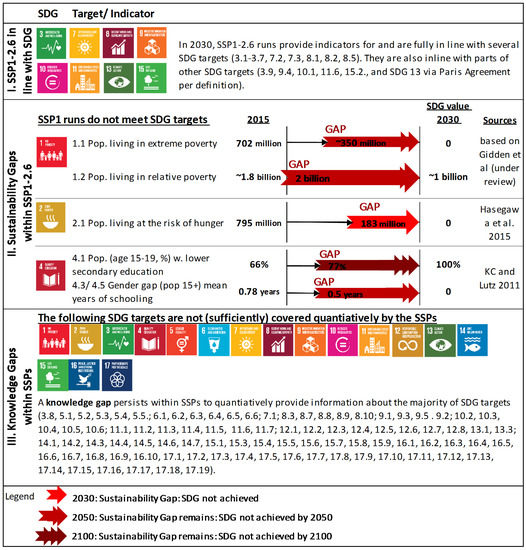
Figure 1.
Identifying sustainability and knowledge gaps in integrated pathways vis-à-vis the SDG, distinguishing between SDG targets (I) with which SSP1/1-2.6 is in line by 2030; (II) where sustainability gaps persists in SSP1/1-2.6 in 2030 and partly beyond and (III) that are quantitatively not sufficiently covered by Shared Socio-economic Pathways (SSPs) to assess the sustainability gap, representing knowledge gaps.
We now provide more detail on this assessment of how SSP1/1-2.6 pathways perform vis-à-vis the SDGs and their targets. We will indicate which representative indicator we are referring to for each target and which assumptions we base our assessment on. We will present background on each target that is met (category I) and where sustainability gaps persist (category II).
3.1. Category I Where SSP1/1-2.6 Runs Are Fully or Partly in Line with SDG Targets
3.1.1. SDG Targets 3.1–3.7, 3.9 on Decreasing Mortality and Access to Reproductive Services
SDG 3 and its 13 targets focus on tackling child and maternal mortality, the major infectious diseases, non-communicable diseases, sexual and reproductive health, as well as providing universal health coverage. Possible future trajectories of these individual causes of death can be translated to aggregate mortality trends where achievement of the SDG targets can be well represented by a general low mortality trajectory (Abel et al. 2016). SSP1 represents an overall low-mortality pathway, which is seen through increases in life expectancy globally, covering close enough SDG targets related to decreasing mortality (3.1–3.6, 3.9). Fertility is low in SSP1 (Kc and Lutz 2017), which is connected to the targets on sexual and reproductive health-care service (3.7) and (5.6). SDG 3 is also closely linked to SDG 5 on gender equality and SDG4 on education. Lutz et al. (2014) show that higher educational attainment of women leads to lower fertility rates.
3.1.2. SDG Targets 7.2 and 7.3 on Renewable Energy and Energy Efficiency
SSP1-2.6 runs mostly meet the energy efficiency (7.3) and the renewable energy targets (7.2). The latter does not provide a concrete target value quantification but calls for a “substantial increase” (UN 2015). The share of renewable energy in secondary energy increases twofold in most SSP1-2.6 runs, to 17.6% to 28.4% in 2030 (IIASA 2016), where the majority of runs is above the 2015 level of around 18% (UN 2016). Annual energy intensity falls from 5.7 MJ/US$2005 in 2012 (UN 2016) to 3 to 4 MJ/US$2005 in 2030 in SSP1-2.6 runs (IIASA 2016). In the long run, improvements in energy intensity outpace historic rates (van Vuuren et al. 2016).
3.1.3. SDG Targets 8.1, 8.2, 8.5 on Economic Growth and Unemployment
SSP1 follows a contraction and convergence approach: income levels of less developed countries will increase faster than those of more developed economies (Dellink et al. 2017). The growth rate of per capita GDP in least developed countries in SSP1 is 7.3% in 2030 (IIASA 2016), which meets the 7% limit of SDG target 8.1. If one however considers a longer-term average, i.e., 2025 to 2035, the per capita growth rate is 6.5% in LDCs. The global growth rate of 3.9% per capita (IIASA 2016) indicates higher levels of economic productivity (8.2). Unemployment is close to 2% in the long run in SSP1 (Dellink et al. 2017), which partly covers 8.5 on work for all, yet fails to cover the quality of work.
3.2. SDG Target 9.4 on CO2 Intensity
SSP1-2.6 achieves SDG target 9.4 on more sustainable industries in terms of a decrease in CO2 intensities. From around 0.45 MtCO2/year/billion US$2005 in 2015 (UN 2016) SSP1-2.6 runs reach 0.12–0.22 MtCO2/year/billion US$2005 in 2030 (IIASA 2016). However, no indicator beyond CO2 intensities, such as recycling rates or circular economy that could characterize sustainable industries is available in the SSPs.
3.2.1. SDG Target 10.1 on Income Inequality
SSP1 provides information on income inequality across countries. The income Gini across countries falls from 0.66 in 2015 to 0.43 in 2030 (Dellink et al. 2017; IIASA 2016), as the income per capita of poorer economies grows stronger than that of more industrialized countries. SSP1 projections on income inequality within countries also see declining Gini coefficients in all countries (Gidden et al. n.d.).
3.2.2. SDG Target 11.6 on Air Quality in Cities
SSP1-2.6. includes data on population living in areas affected by dangerous air pollution, partly covering target 3.9 on reducing the number of deaths and illnesses from pollution and contamination and 11.6 on air quality in cities. SSP1 accounts for significant improvements of air quality based on “faster rate of pollution control technology development, with greater effectiveness as compared to current technologies” (Rao et al. 2017). In addition, medium- and low income countries will quickly adapt best available technologies and experience strong enforcement of environmental laws. Despite large improvements in climate mitigation policy and energy access in SSP1-2.6, parts of the population are still exposed to levels of pollution above WHO recommended levels of PM 2.5 in 2030, especially in Asia (13% of population exposed to PM2.5 levels of above 35 μg/m3), the Middle East and Africa (8% above 35 μg/m3) (Rao et al. 2017). Details on urban pollution levels alone are not available. We conclude that the reduction in people affected by air pollution in general will result in improved air quality in cities and reduced deaths from air pollution, meeting part of the targets 11.6 and 3.9.
3.2.3. SDG Target 15.2 on Halting Deforestation
SSP1-2.6 runs perform well in terms of land-use change and meeting global aspirations under the SDGs. In most runs deforestation comes to a halt, in some forest cover increases slightly (start value in 2015: ~4000 million ha. SSP1-2.6 range for 2030: 3881–4135 million ha) (IIASA 2016). However, while halting deforestation is an explicit target, this leaves considerable room for interpretation. Given that the SDGs are global goals, should this target only be applied at the global level or also at regional or national levels? How should the ambition level with regards to conserving and managing natural resources change between 2030 and 2050 to ensure long-term environmental sustainability? In this context, further consideration may be given to assessing changes by forest types or biomes and where such changes occur. This will also be important with regards to assessing progress towards other environmentally relevant SDG targets, such as halting biodiversity loss (target 15.5). There is the need to combine the quantitative analysis with additional qualitative considerations. The recently launched Forests, Agriculture, Biodiversity, Land, and Energy Project: Pathways for Sustainable Land Use (FABLE) (IIASA 2017) will further help in assessing interlinkages between development and environmental objectives in the land-use context across scales.
3.2.4. SDG 13 on Climate Change
The SDGs need to be achieved while limiting global warming and ensuring resilience to climatic change, which poses an additional constraint when assessing potential synergies and trade-offs between the various goals (Sperling et al. 2016). SDG 13 specifically refers to the United Nations Framework Convention on Climate Change (UNFCCC) as primary decision-making body on international climate change policy (UN 2015). The Paris Agreement reached in 2015 set the objective of limiting global warming to well below 2 °C above pre-industrial levels, while also encouraging efforts to further confine the warming to only 1.5 °C (UNFCCC 2015). SSP1-2.6 runs generally show a high probability of staying below 2 °C, but a scenario with a more stringent carbon budget would be needed to meet the additional ambition level. The targets under SDG 13 on education, resilience and policies fall under category III of our assessment.
3.3. Category II Where SSP1/1-2.6 Runs Do Not Meet SDG Targets in 2030 (or Later) (Sustainability Gaps)
3.3.1. SDG Targets 1.1 and 1.2 on Absolute and Relative Poverty
Assuming a log-normal distribution of income and its relation to poverty (Lopez and Servén 2006), national GDP (IIASA 2016) and population projections of SSP1 (Lutz et al. 2014), household consumptions shares of GDP (which were held constant) (World Bank 2017a) together with national income inequality projections (Gidden et al. n.d.) were used to calculate the share of population living in absolute and relative poverty, respectively. The absolute poverty threshold of 1.90 $2011/person/day (World Bank 2015) was also assumed for 2030. The number of people living in absolute poverty then falls from around 700 million (9.6% of global population) in 2015 (PovcalNet 2015) to around 350 million (4%) in 2030 in SSP1, missing the SDG target of ending absolute poverty.
Relative national poverty is based on nationally defined threshold values. For illustrative purposes we apply the widely used poverty measure of proportion of people living below 60% of their country’s median income (Eurostat 2017). In countries where this would correspond to below 1.9 USD per day, the absolute poverty line represents the minimum. The population living in relative poverty according to this measure increases in SSP1 from around 1.8 billion in 2015 (26% of global population) to 2 billion in 2030 (25% of global population). Thus applying such a threshold value would result in missing the SDG target of halving the proportion of population living in relative poverty in 2015 by 2030, which would correspond to 13% or around 1 billion people. SSP1 achieves both poverty targets only in the second half of the 21st century.
3.3.2. SDG Target 2.1 on Undernourishment
SSP1-2.6 runs do reduce the people living at the risk of hunger by 2030, yet around 180 million people remain undernourished (Hasegawa et al. 2015), failing the SDG target 2.1. By 2050 though, hunger is eradicated in SSP1.2-6. With increasing economic prosperity within SSP1, malnourishment should also be regarded in terms of the risk of obesity. This needs to be further assessed within the context of the SSPs, including the quality of the food intake, beyond caloric value, such as micronutrients.
3.3.3. SDG Target 4.1 on Universal Secondary Education
SDG 4 focuses on “ensuring inclusive and equitable quality education and promote lifelong learning opportunities for all” and is split into ten targets. Target 4.1 on primary and secondary education for all by 2030 is the most prominent and specific one. It also covers content of other targets (e.g., 4.5 on equal access, 4.6 on literacy). Higher educational attainment is linked with several benefits of human development, from higher productivity, income and health to stronger political agency, environmental awareness, risk resilience and gender equality (Lutz et al. 2014).
The population projections of SSP1 rely on high levels of investments in education across all countries which accelerates the demographic transition (Kc and Lutz 2017). In the rapid development case of SSP1, these investments result in high advances in education rates which are based on a combination of the medium future trajectory for progression rates rooted in the experiences of the past four decades of all countries and the assumption that educational advances are accelerating with South Korea, which experienced the most rapid expansion recently, severing as a benchmark.
In 2010, more than 1.1 billion adults (17% of the population) had no education at all or had not completed primary school (Lutz et al. 2014). With 57% of global population with primary, 44% with lower and 27% with upper secondary education in 2010 (Lutz et al. 2014), target 4.1 cannot be fulfilled anymore in time as too many cohorts have fallen out of the education system already to catch up in 15 years, independent of interpreting “secondary education” as completing lower or upper secondary education. Also, enrollment and graduation rates do not provide any insights on quality of education. The World Bank (2017b) estimates that about 250 million children in the world cannot read or write despite having attended primary school for three years or more.
According to SSP1 (Kc and Lutz 2017; Lutz et al. 2014) in 2030, 71% of global population will finish primary education, 60% lower secondary and 44% upper secondary education, leaving 10% with no or incomplete primary education and another 11% with primary only. By 2100, the SSP1 comes very close to achieving target 4.1 with 91% finishing primary education, 87% lower secondary and 81% upper secondary education and 52% post-secondary, leaving only 1% without any education or incomplete primary (the remainder 8% are children and youth below 15 years). SSP1 is more comprehensive in terms of education than SDG 4 as it presents also high shares of tertiary education, including for women, which is not covered quantitatively by SDG 4.
3.3.4. SDG Targets 4.3 and 4.5 on Education and Gender
Education is the only area of the SSPs where implications on gender equality are included. It has been shown that higher educational attainment of women has a direct effect on fertility rates (Lutz et al. 2014). This is reflected in SSP1. The trickle-down effect via fertility and mortality on population growth will impact several other SDGs, especially concerning basic human needs (access to food, water and energy) and human impacts on the earth systems. Within SSP1, the gender gap in the number of mean years of schooling among the whole adult population is decreasing from 0.78 in 2015 to 0.5 years in 2030 (Kc and Lutz 2017; Lutz et al. 2014).
3.4. Category III Wherenot Enough Quantitative Information is Available within the SSPs (Knowledge Gaps)
The SSP framework or related analyses do not cover all of the SDG targets quantitatively. Instead several SDG targets (Category III) are qualitatively described in the SSP-narrative (e.g., technological innovation, cooperation, environmental awareness, access to services, see Appendix B). Some targets can be assumed implicitly included in the framework as they are closely related to other indicators. One example would be 3.8 on universal health coverage. The low mortality rates and increasing life expectancy within SSP1 provides an indication that health coverage and health services will improve. In the narrative increasing health investments are also mentioned. Yet no clear indicator is available within the SSPs to assess the degree of coverage of health services. In other cases, there is no information on an entire SDG in the SSPs. This is for example the case with regard to global goals dealing with gender (SDG 5) or the marine environment (SDG 14).
4. Discussion
The UN 2030 Agenda frames an ambitious global development agenda with a holistic view of sustainability and calls for policy coherence. Scientific assessments can provide guidance to the SDG implementation process, helping to identify options for mitigating potential trade-offs and maximizing synergies between the multiple social, economic and environmental objectives. However, current analytical and quantitative modeling capabilities fall short of being able to capture all 17 SDGs and their targets. In addition, long-term sustainability concerns need to be considered beyond the 2030 time-horizon of the SDGs.
IAMs implementing the SSPs are especially strong in certain environmental and resource use areas and are weak in governance and human systems as can be seen in our assessment. But the SSPs are well positioned to serve as the basis for a comprehensive framework that allows different research fields to work together and increase interactions and linkages across disciplines where they are being adapted to the respective needs and capabilities of the models (see for example Hegre et al. (2016) who use the SSPs to forecast conflicts). Yet, we believe it is timely that the following aspects are also being considered in any further enhancement of IAMs and their scenario framework of the SSPs, so that the work remains relevant for policy makers and provides scientific findings supporting policy coherence across the SDG domains.
We have explored here the requirements for more comprehensively evaluating the sustainability of development pathways, guided by holistic interpretation of the SDGs to enable an assessment of the potential embedded synergies and trade-offs between the economic, social and environmental objectives. We have shown that sustainability and knowledge gaps persist in the pathways currently used by the global change community. Examining the overlap of SSPs and SDGs benefits the research community currently using the SSPs. The SSPs consist of narratives that guide quantitative scenarios of future socio-economic development, foremost scenarios on population and economic development that are then used by models, especially IAMs, to provide estimates of future development in areas such as the energy or land-use sectors. Despite SSP1/SSP1-2.6 being a very ambitious and optimistic scenario for future global socio-economic development, the pathway does not meet several SDG targets.
The long list of SDG targets, which cannot be assessed by the current SSPs provides us with a diverse research agenda. For research and modeling purposes, the SDG targets can serve as a basis but need to be operationalized to reduce complexity. We see this as call for action for science to work on filling the knowledge gaps. Research is needed to develop integrated sustainable development pathways to include as many SDG dimensions as possible and to test policy options that achieve them. Without adequate consideration of potential trade-offs, mitigation policies, for example, may lead to undesired outcomes, such as threatening lower income groups by constraining energy access (Cameron et al. 2016). The UN 2030 agenda requires going well beyond the climate policy focus of the SSPs. Both the models used for quantitative assessments applying the SSPs as well as the scope of the SSP narratives would benefit from broadening.
First, we propose broadening the SSP narratives to cover more domains relevant to the SDGs. This already means a big step forward, going beyond a climate change focus. Advances can be reached by more systematically developing the interfaces, where quantitative and qualitative analyses can talk to each other. Yet, broadening the narratives alone will not be sufficient in analyzing them quantitatively, if these domains are not reflected in models using the SSPs.
Second, we are also suggesting that the capabilities of the models used for the quantitative assessment, foremost IAMs, need to be enhanced. The current generation of IAMs can be regarded as ‘best compromise’ between different desirable properties in the model based analysis of system(s) transformation. On the one hand, they describe technological options and other sectoral characteristics in sufficient detail to be able to assess substantially different technological futures over the long run. On the other hand, their system boundaries are broad enough to capture endogenously most to all relevant effects of interest and interactions at the system level. For instance, IAMs typically cover all sources of emissions at global level. Partial coverage only (ignoring regions or emission sources) would not be sufficient to assess climate change outcomes. However, new challenges require these models to be further enhanced in the future—regarding both the level of detail and the system boundaries. Capturing more SDG dimensions in a modeling framework requires to expand the system boundaries of the models significantly compared to the status quo, since these sectors—e.g., health—typically are not yet covered by IAMs. Some SDG sectors require the development of new concepts that can be translated into mathematical equations to become accessible for modeling, such as concepts for theories for societal change, analogous to concepts of technological change that are already incorporated in IAMs.
Moreover, IAMs need to improve on the representation of sectorial structures that affect decision making in reality. Traditionally rooted in energy system planning IAMs classically have adopted a central planner logic, which may not accurately represent current market structures and decision making in the energy and other sectors. In order to enhance the degree of market realism, models may need to operate for example with a higher time resolution or better reflect the economic incentive structure by different actors. These often also depend on policy frameworks, which may also imply a higher regional resolution.
Trade-offs also arise from computational constraints, i.e., having too large and/or too detailed models with too many variables at some point is not anymore computationally feasible, but also causes too high complexities for the modeling analyst, i.e., managing the modeling workflow gets overly complex and interpreting the model behavior difficult. Including a plethora of indicators presents the risk of adding noise to the analysis. Endogenizing everything will not be possible and is also not our objective. Ideally, IAMs can provide some information for possible future developments for each of the SDGs based on a set of representative indicators.
So what could be a suitable way forward? A framework that can integrate both sectorial details with cross-sectorial linkages and macroeconomic completeness is known as top-down-bottom-up hybrid modeling (Holz et al. 2016; Hourcade et al. 2006). However, even if advances in computational power and solver algorithms would allow to build a single hybrid model that captures everything this may not be desirable due to the other mentioned drawbacks. Instead one could implement all the needed details in the models, but keep them at a manageable size and link them to each other as separate modules within a top-down-bottom-up hybrid framework, where the top level model(s)—e.g., a computable general equilibrium model—acts both as an accounting framework and reference model for the identification of equilibrium outcomes. The linkage would not have to be done manually, but could be controlled by some learning algorithm. Recent development in IAM modeling with the development of modeling frameworks rather than single models, are already a step in this direction.
The objective is neither to arrive at one single model that covers all SDG targets nor that all models should be expanded to cover all SDG areas. Different IAMs provide valuable details in different sectors and at different levels of granularity (e.g., global versus national models, sectoral versus macroeconomic models), crucial information that should not be lost. While the SDGs will have to be implemented by nation states, there is benefit in linking and comparing regional, national and global level assessments in order to capture potential knock-on effects across scales and review implications for sustainability. We do not imply that all 126 (numeric) SDG targets (or even all suggested indicators) should be covered by either models or policy makers in their work.
At the same time, policy makers are urged to implement the 2030 Agenda to close the sustainability gaps that emerge from our analysis, as even within an optimistic case several dimensions are not achieved in time. Our analysis underlines the importance of the SDG notion of “leaving no SDG behind”.
This analysis is a contribution to the TWI2050’s objectives of framing the solution space for sustainable development pathways. We anticipate that such integrative analyses put forth by initiatives such as TWI2050 and the IAM community will inform the implementation of the UN 2030 Agenda. Together with regional and national level assessments, this can strengthen the foundation for strategic policy decisions, which integrate sustainability concerns across spatial and temporal scales.
Acknowledgments
All authors’ work was supported by the International Institute for Applied Systems Analysis (IIASA) within the World in 2050 (TWI2050) initiative.
Author Contributions
All authors designed the research and analyzed the data. Caroline Zimm wrote the paper with inputs from all authors. All authors contributed to the discussion and interpretation of the results.
Conflicts of Interest
The authors declare no conflicts of interest.
Appendix A. SDG Targets (Numeric)
Source: United Nations (2015): A/RES/70/1, Transforming Our World: The 2030 Agenda for Sustainable Development.
Appendix A.1. SDG 1 End Poverty in All its Forms Everywhere
1.1 By 2030, eradicate extreme poverty for all people everywhere, currently measured as people living on less than $1.25 a day;
1.2 By 2030, reduce at least by half the proportion of men, women and children of all ages living in poverty in all its dimensions according to national definitions;
1.3 Implement nationally appropriate social protection systems and measures for all, including floors, and by 2030 achieve substantial coverage of the poor and the vulnerable;
1.4 By 2030, ensure that all men and women, in particular the poor and the vulnerable, have equal rights to economic resources, as well as access to basic services, ownership and control over land and other forms of property, inheritance, natural resources, appropriate new technology and financial services, including microfinance;
1.5 By 2030, build the resilience of the poor and those in vulnerable situations and reduce their exposure and vulnerability to climate-related extreme events and other economic, social and environmental shocks and disasters.
Appendix A.2. SDG 2 End Hunger, Achieve Food Security and Improved Nutrition and Promote Sustainable Agriculture
2.1 By 2030, end hunger and ensure access by all people, in particular the poor and people in vulnerable situations, including infants, to safe, nutritious and sufficient food all year round;
2.2 By 2030, end all forms of malnutrition, including achieving, by 2025, the internationally agreed targets on stunting and wasting in children under 5 years of age, and address the nutritional needs of adolescent girls, pregnant and lactating women and older persons;
2.3 By 2030, double the agricultural productivity and incomes of small-scale food producers, in particular women, indigenous peoples, family farmers, pastoralists and fishers, including through secure and equal access to land, other productive resources and inputs, knowledge, financial services, markets and opportunities for value addition and non-farm employment;
2.4 By 2030, ensure sustainable food production systems and implement resilient agricultural practices that increase productivity and production, that help maintain ecosystems, that strengthen capacity for adaptation to climate change, extreme weather, drought, flooding and other disasters and that progressively improve land and soil quality;
2.5 By 2020, maintain the genetic diversity of seeds, cultivated plants and farmed and domesticated animals and their related wild species, including through soundly managed and diversified seed and plant banks at the national, regional and international levels, and promote access to and fair and equitable sharing of benefits arising from the utilization of genetic resources and associated traditional knowledge, as internationally agreed.
Appendix A.3. SDG 3 Ensure Healthy Lives and Promote Well-Being for All at All Ages
3.1 By 2030, reduce the global maternal mortality ratio to less than 70 per 100,000 live births;
3.2 By 2030, end preventable deaths of newborns and children under 5 years of age, with all countries aiming to reduce neonatal mortality to at least as low as 12 per 1000 live births and under-5 mortality to at least as low as 25 per 1000 live births;
3.3 By 2030, end the epidemics of AIDS, tuberculosis, malaria and neglected tropical diseases and combat hepatitis, water-borne diseases and other communicable diseases;
3.4 By 2030, reduce by one third premature mortality from non-communicable diseases through prevention and treatment and promote mental health and well-being;
3.5 Strengthen the prevention and treatment of substance abuse, including narcotic drug abuse and harmful use of alcohol;
3.6 By 2020, halve the number of global deaths and injuries from road traffic accidents;
3.7 By 2030, ensure universal access to sexual and reproductive health-care services, including for family planning, information and education, and the integration of reproductive health into national strategies and programmes;
3.8 Achieve universal health coverage, including financial risk protection, access to quality essential health-care services and access to safe, effective, quality and affordable essential medicines and vaccines for all;
3.9 By 2030, substantially reduce the number of deaths and illnesses from hazardous chemicals and air, water and soil pollution and contamination.
Appendix A.4. SDG 4 Ensure Inclusive and Equitable Quality Education and Promote lifelong Learning Opportunities for All
4.1 By 2030, ensure that all girls and boys complete free, equitable and quality primary and secondary education leading to relevant and effective learning outcomes;
4.2 By 2030, ensure that all girls and boys have access to quality early childhood development, care and pre-primary education so that they are ready for primary education;
4.3 By 2030, ensure equal access for all women and men to affordable and quality technical, vocational and tertiary education, including university;
4.4 By 2030, substantially increase the number of youth and adults who have relevant skills, including technical and vocational skills, for employment, decent jobs and entrepreneurship;
4.5 By 2030, eliminate gender disparities in education and ensure equal access to all levels of education and vocational training for the vulnerable, including persons with disabilities, indigenous peoples and children in vulnerable situations;
4.6 By 2030, ensure that all youth and a substantial proportion of adults, both men and women, achieve literacy and numeracy;
4.7 By 2030, ensure that all learners acquire the knowledge and skills needed to promote sustainable development, including, among others, through education for sustainable development and sustainable lifestyles, human rights, gender equality, promotion of a culture of peace and non-violence, global citizenship and appreciation of cultural diversity and of culture’s contribution to sustainable development.
Appendix A.5. SDG 5 Achieve Gender Equality and Empower All Women and Girls
5.1 End all forms of discrimination against all women and girls everywhere;
5.2 Eliminate all forms of violence against all women and girls in the public and private spheres, including trafficking and sexual and other types of exploitation;
5.3 Eliminate all harmful practices, such as child, early and forced marriage and female genital mutilation;
5.4 Recognize and value unpaid care and domestic work through the provision of public services, infrastructure and social protection policies and the promotion of shared responsibility within the household and the family as nationally appropriate;
5.5 Ensure women’s full and effective participation and equal opportunities for leadership at all levels of decision-making in political, economic and public life;
5.6 Ensure universal access to sexual and reproductive health and reproductive rights as agreed in accordance with the Programme of Action of the International Conference on Population and Development and the Beijing Platform for Action and the outcome documents of their review conferences.
Appendix A.6. SDG 6 Ensure Availability and Sustainable Management of Water and Sanitation for All
6.1 By 2030, achieve universal and equitable access to safe and affordable drinking water for all;
6.2 By 2030, achieve access to adequate and equitable sanitation and hygiene for all and end open defecation, paying special attention to the needs of women and girls and those in vulnerable situations;
6.3 By 2030, improve water quality by reducing pollution, eliminating dumping and minimizing release of hazardous chemicals and materials, halving the proportion of untreated wastewater and substantially increasing recycling and safe reuse globally;
6.4 By 2030, substantially increase water-use efficiency across all sectors and ensure sustainable withdrawals and supply of freshwater to address water scarcity and substantially reduce the number of people suffering from water scarcity;
6.5 By 2030, implement integrated water resources management at all levels, including through transboundary cooperation as appropriate;
6.6 By 2020, protect and restore water-related ecosystems, including mountains, forests, wetlands, rivers, aquifers and lakes.
Appendix A.7. SDG 7 Ensure Access to Affordable, Reliable, Sustainable and Modern Energy for All
7.1 By 2030, ensure universal access to affordable, reliable and modern energy services;
7.2 By 2030, increase substantially the share of renewable energy in the global energy mix;
7.3 By 2030, double the global rate of improvement in energy efficiency.
Appendix A.8. SDG 8 Promote Sustained, Inclusive and Sustainable Economic Growth, Full and Productive Employment and Decent Work for All
8.1 Sustain per capita economic growth in accordance with national circumstances and, in particular, at least 7 per cent gross domestic product growth per annum in the LDCs;
8.2 Achieve higher levels of economic productivity through diversification, technological upgrading and innovation, including through a focus on high-value added and labour-intensive sectors;
8.3 Promote development-oriented policies that support productive activities, decent job creation, entrepreneurship, creativity and innovation, and encourage the formalization and growth of micro-, small- and medium-sized enterprises, including through access to financial services;
8.4 Improve progressively, through 2030, global resource efficiency in consumption and production and endeavour to decouple economic growth from environmental degradation, in accordance with the 10-year framework of programmes on sustainable consumption and production, with developed countries taking the lead;
8.5 By 2030, achieve full and productive employment and decent work for all women and men, including for young people and persons with disabilities, and equal pay for work of equal value;
8.6 By 2020, substantially reduce the proportion of youth not in employment, education or training;
8.7 Take immediate and effective measures to eradicate forced labour, end modern slavery and human trafficking and secure the prohibition and elimination of the worst forms of child labour, including recruitment and use of child soldiers, and by 2025 end child labour in all its forms;
8.8 Protect labour rights and promote safe and secure working environments for all workers, including migrant workers, in particular women, and those in precarious employment;
8.9 By 2030, devise and implement policies to promote sustainable tourism that creates jobs and promotes local culture and products;
8.10 Strengthen the capacity of domestic financial institutions to encourage and expand access to banking, insurance and financial services for all.
Appendix A.9. SDG 9 Build Resilient Infrastructure, Promote Inclusive and Sustainable Industrialization and Foster Innovation
9.1 Develop quality, reliable, sustainable and resilient infrastructure, including regional and transborder infrastructure, to support economic development and human well-being, with a focus on affordable and equitable access for all;
9.2 Promote inclusive and sustainable industrialization and, by 2030, significantly raise industry’s share of employment and gross domestic product, in line with national circumstances, and double its share in least developed countries;
9.3 Increase the access of small-scale industrial and other enterprises, in particular in developing countries, to financial services, including affordable credit, and their integration into value chains and markets;
9.4 By 2030, upgrade infrastructure and retrofit industries to make them sustainable, with increased resource-use efficiency and greater adoption of clean and environmentally sound technologies and industrial processes, with all countries taking action in accordance with their respective capabilities;
9.5 Enhance scientific research, upgrade the technological capabilities of industrial sectors in all countries, in particular developing countries, including, by 2030, encouraging innovation and substantially increasing the number of research and development workers per 1 million people and public and private research and development spending.
Appendix A.10. SDG 10 Reduce Inequality within and among Countries
10.1 By 2030, progressively achieve and sustain income growth of the bottom 40 per cent of the population at a rate higher than the national average;
10.2 By 2030, empower and promote the social, economic and political inclusion of all, irrespective of age, sex, disability, race, ethnicity, origin, religion or economic or other status;
10.3 Ensure equal opportunity and reduce inequalities of outcome, including by eliminating discriminatory laws, policies and practices and promoting appropriate legislation, policies and action in this regard;
10.4 Adopt policies, especially fiscal, wage and social protection policies, and progressively achieve greater equality;
10.5 Improve regulation & monitoring of global financial markets and institutions and strengthen the implementation of such regulations;
10.6 Ensure enhanced representation and voice for developing countries in decision-making in global international economic and financial institutions in order to deliver more effective, credible, accountable and legitimate institutions;
10.7 Facilitate orderly, safe, regular and responsible migration and mobility of people, including through the implementation of planned and well-managed migration policies.
Appendix A.11. SDG 11 Make Cities and Human Settlements Inclusive, Safe, Resilient and Sustainable
11.1 By 2030, ensure access for all to adequate, safe and affordable housing and basic services and upgrade slums;
11.2 By 2030, provide access to safe, affordable, accessible and sustainable transport systems for all, improving road safety, notably by expanding public transport, with special attention to the needs of those in vulnerable situations, women, children, persons with disabilities and older persons;
11.3 By 2030, enhance inclusive and sustainable urbanization and capacity for participatory, integrated and sustainable human settlement planning and management in all countries;
11.4 Strengthen efforts to protect and safeguard the world’s cultural and natural heritage;
11.5 By 2030, significantly reduce the number of deaths and the number of people affected and substantially decrease the direct economic losses relative to global gross domestic product caused by disasters, including water-related disasters, with a focus on protecting the poor and people in vulnerable situations;
11.6 By 2030, reduce the adverse per capita environmental impact of cities, including by paying special attention to air quality and municipal and other waste management;
11.7 By 2030, provide universal access to safe, inclusive and accessible, green and public spaces, in particular for women and children, older persons and persons with disabilities;
Appendix A.12. SDG 12 Ensure Sustainable Consumption and Production Patterns
12.1 Implement the 10-year framework of programmes on sustainable consumption and production, all countries taking action, with developed countries taking the lead, taking into account the development and capabilities of developing countries;
12.2 By 2030, achieve the sustainable management and efficient use of natural resources;
12.3 By 2030, halve per capita global food waste at the retail and consumer levels and reduce food losses along production and supply chains, including post-harvest losses;
12.4 By 2020, achieve the environmentally sound management of chemicals and all wastes throughout their life cycle, in accordance with agreed international frameworks, and significantly reduce their release to air, water and soil in order to minimize their adverse impacts on human health and the environment;
12.5 By 2030, substantially reduce waste generation through prevention, reduction, recycling and reuse;
12.6 Encourage companies, especially large and transnational companies, to adopt sustainable practices and to integrate sustainability information into their reporting cycle;
12.7 Promote public procurement practices that are sustainable, in accordance with national policies and priorities;
12.8 By 2030, ensure that people everywhere have the relevant information and awareness for sustainable development and lifestyles in harmony with nature.
Appendix A.13. SDG 13 Take Urgent Action to Combat Climate Change and Its Impacts4
13.1 Strengthen resilience and adaptive capacity to climate-related hazards and natural disasters in all countries;
13.2 Integrate climate change measures into national policies, strategies and planning;
13.3 Improve education, awareness-raising and human and institutional capacity on climate change mitigation, adaptation, impact reduction and early warning.
Appendix A.14. SDG 14 Conserve and Sustainably Use the Oceans, Seas and Marine Resources for Sustainable Development
14.1 By 2025, prevent and significantly reduce marine pollution of all kinds, in particular from land-based activities, including marine debris and nutrient pollution;
14.2 By 2020, sustainably manage and protect marine and coastal ecosystems to avoid significant adverse impacts, including by strengthening their resilience, and take action for their restoration in order to achieve healthy and productive oceans;
14.3 Minimize and address the impacts of ocean acidification, including through enhanced scientific cooperation at all levels;
14.4 By 2020, effectively regulate harvesting and end overfishing, illegal, unreported and unregulated fishing and destructive fishing practices and implement science-based management plans, in order to restore fish stocks in the shortest time feasible, at least to levels that can produce maximum sustainable yield as determined by their biological characteristics;
14.5 By 2020, conserve at least 10 per cent of coastal and marine areas, consistent with national and international law and based on the best available scientific information;
14.6 By 2020, prohibit certain forms of fisheries subsidies which contribute to overcapacity and overfishing, eliminate subsidies that contribute to illegal, unreported and unregulated fishing and refrain from introducing new such subsidies, recognizing that appropriate and effective special and differential treatment for developing and least developed countries should be an integral part of the World Trade Organization fisheries subsidies negotiation;
14.7 By 2030, increase the economic benefits to Small Island developing States and least developed countries from the sustainable use of marine resources, including through sustainable management of fisheries, aquaculture and tourism.
Appendix A.15. SDG 15 Protect, Restore and Promote Sustainable Use of Terrestrial Ecosystems, Sustainably Manage forests, Combat Desertification, and Halt and Reverse Land Degradation and Halt Biodiversity Loss
15.1 By 2020, ensure the conservation, restoration and sustainable use of terrestrial and inland freshwater ecosystems and their services, in particular forests, wetlands, mountains and drylands, in line with obligations under international agreements;
15.2 By 2020, promote the implementation of sustainable management of all types of forests, halt deforestation, restore degraded forests and substantially increase afforestation and reforestation globally;
15.3 By 2030, combat desertification, restore degraded land and soil, including land affected by desertification, drought and floods, and strive to achieve a land degradation-neutral world;
15.4 By 2030, ensure the conservation of mountain ecosystems, including their biodiversity, in order to enhance their capacity to provide benefits that are essential for sustainable development;
15.5 Take urgent and significant action to reduce the degradation of natural habitats, halt the loss of biodiversity and, by 2020, protect and prevent the extinction of threatened species;
15.6 Promote fair and equitable sharing of the benefits arising from the utilization of genetic resources and promote appropriate access to such resources, as internationally agreed;
15.7 Take urgent action to end poaching and trafficking of protected species of flora and fauna and address both demand and supply of illegal wildlife products;
15.8 By 2020, introduce measures to prevent the introduction and significantly reduce the impact of invasive alien species on land and water ecosystems and control or eradicate the priority species;
15.9 By 2020, integrate ecosystem and biodiversity values into national and local planning, development processes, poverty reduction strategies and accounts.
Appendix A.16. SDG 16 Promote Peaceful and Inclusive Societies for Sustainable Development, Provide Access to Justice for All and Build Effective, Accountable and Inclusive Institutions at All Levels
16.1 Significantly reduce all forms of violence and related death rates everywhere;
16.2 End abuse, exploitation, trafficking and all forms of violence against and torture of children;
16.3 Promote the rule of law at the national and international levels and ensure equal access to justice for all;
16.4 By 2030, significantly reduce illicit financial and arms flows, strengthen the recovery and return of stolen assets and combat all forms of organized crime;
16.5 Substantially reduce corruption and bribery in all their forms;
16.6 Develop effective, accountable and transparent institutions at all levels;
16.7 Ensure responsive, inclusive, participatory and representative decision-making at all levels;
16.8 Broaden and strengthen the participation of developing countries in the institutions of global governance;
16.9 By 2030, provide legal identity for all, including birth registration;
16.10 Ensure public access to information and protect fundamental freedoms, in accordance with national legislation and international agreements.
Appendix A.17. SDG 17 Strengthen the Means of Implementation and Revitalize the Global Partnership for Sustainable Development Targets
Finance
17.1 Strengthen domestic resource mobilization, including through international support to developing countries, to improve domestic capacity for tax and other revenue collection;
17.2 Developed countries to implement fully their official development assistance commitments, including the commitment by many developed countries to achieve the target of 0.7 per cent of ODA/GNI to developing countries and 0.15 to 0.20 per cent of ODA/GNI to least developed countries; ODA providers are encouraged to consider setting a target to provide at least 0.20 per cent of ODA/GNI to least developed countries;
17.3 Mobilize additional financial resources for developing countries from multiple sources;
17.4 Assist developing countries in attaining long-term debt sustainability through coordinated policies aimed at fostering debt financing, debt relief and debt restructuring, as appropriate, and address the external debt of highly indebted poor countries to reduce debt distress;
17.5 Adopt and implement investment promotion regimes for least developed countries.
Technology
17.6 Enhance North-South, South-South and triangular regional and international cooperation on and access to science, technology and innovation and enhance knowledge sharing on mutually agreed terms, including through improved coordination among existing mechanisms, in particular at the United Nations level, and through a global technology facilitation mechanism;
17.7 Promote the development, transfer, dissemination and diffusion of environmentally sound technologies to developing countries on favourable terms, including on concessional and preferential terms, as mutually agreed;
17.8 Fully operationalize the technology bank and science, technology and innovation capacity-building mechanism for least developed countries by 2017 and enhance the use of enabling technology, in particular information and communications technology.
Capacity-Building
17.9 Enhance international support for implementing effective and targeted capacity-building in developing countries to support national plans to implement all the sustainable development goals, including through North-South, South-South and triangular cooperation.
Trade
17.10 Promote a universal, rules-based, open, non-discriminatory and equitable multilateral trading system under the World Trade Organization, including through the conclusion of negotiations under its Doha Development Agenda;
17.11 Significantly increase the exports of developing countries, in particular with a view to doubling the least developed countries’ share of global exports by 2020;
17.12 Realize timely implementation of duty-free and quota-free market access on a lasting basis for all least developed countries, consistent with World Trade Organization decisions, including by ensuring that preferential rules of origin applicable to imports from least developed countries are transparent and simple, and contribute to facilitating market access.
Systemic Issues
Policy and Institutional Coherence
17.13 Enhance global macroeconomic stability, including through policy coordination and policy coherence;
17.14 Enhance policy coherence for sustainable development;
17.15 Respect each country’s policy space and leadership to establish and implement policies for poverty eradication and sustainable development.
Multi-Stakeholder Partnerships
17.16 Enhance the global partnership for sustainable development, complemented by multi-stakeholder partnerships that mobilize and share knowledge, expertise, technology and financial resources, to support the achievement of the sustainable development goals in all countries, in particular developing countries;
17.17 Encourage and promote effective public, public-private and civil society partnerships, building on the experience and resourcing strategies of partnerships.
Data, Monitoring and Accountability
17.18 By 2020, enhance capacity-building support to developing countries, including for least developed countries and small island developing States, to increase significantly the availability of high-quality, timely and reliable data disaggregated by income, gender, age, race, ethnicity, migratory status, disability, geographic location and other characteristics relevant in national contexts;
17.19 By 2030, build on existing initiatives to develop measurements of progress on sustainable development that complement gross domestic product, and support statistical capacity-building in developing countries.
Appendix B
SSP1 Narrative (O’Neill et al. 2017)
“The world shifts gradually, but pervasively, toward a more sustainable path, emphasizing more inclusive development that respects perceived environmental boundaries. Increasing evidence of and accounting for the social, cultural, and economic costs of environmental degradation and inequality drive this shift. Management of the global commons slowly improves, facilitated by increasingly effective and persistent cooperation and collaboration of local, national, and international organizations and institutions, the private sector, and civil society. Educational and health investments accelerate the demographic transition, leading to a relatively low population. Beginning with current high-income countries, the emphasis on economic growth shifts toward a broader emphasis on human well-being, even at the expense of somewhat slower economic growth over the longer term. Driven by an increasing commitment to achieving development goals, inequality is reduced both across and within countries. Investment in environmental technology and changes in tax structures lead to improved resource efficiency, reducing overall energy and resource use and improving environmental conditions over the longer term. Increased investment, financial incentives and changing perceptions make renewable energy more attractive. Consumption is oriented toward low material growth and lower resource and energy intensity. The combination of directed development of environmentally friendly technologies, a favorable outlook for renewable energy, institutions that can facilitate international cooperation, and relatively low energy demand results in relatively low challenges to mitigation. At the same time, the improvements in human well-being, along with strong and flexible global, regional, and national institutions imply low challenges to adaptation.”
Appendix C
Table on SDGs, SDG targets, and relevant SSP indicators used for the initial assessment.
Note: ‘-‘ denote gaps, which are not covered sufficiently by SSPs and assessed literature, except for some notions in the narrative as indicated.
| SDG | SDG Target | SSP Indicator |
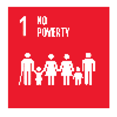 | 1.1 1.2 1.3–1.5 | Share of population living in relative poverty (below 60% of national median income) (%) Share of population living in relative poverty (below 60% of national median income) (%) - |
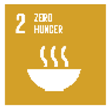 | 2.1 2.2-2.5 | Share of Population living at the risk of hunger (%) - |
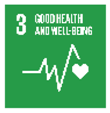 | 3.1–3.7, 3.9 3.8 | Life expectancy (years) - |
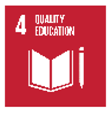 | 4.1 4.3, 4.5 4.4, 4.6–4.7 | Share of leaving cohort (15–19 years) with lower secondary education. Gender gap in mean years of schooling (population > 15 years) - |
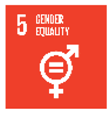 | 5.1–5.6 | - |
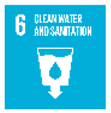 | 6.1–6.6 | - |
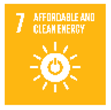 | 7.1 7.2 7.3 | - Share of renewable energy in secondary energy Energy intensity (MJ/US$) |
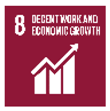 | 8.1 8.2 8.5 8.3–8.4 | GDP per capita of LDCs (US$) Growth rate of GDP per capita (%) Unemployment rate (%) - |
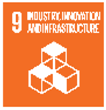 | 9.4 9.1–9.3, 9.5 | CO2 intensity (MtCO2/billion US$) - |
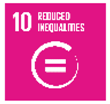 | 10.1 10.2–10.7 | Income gini coefficient across countries - |
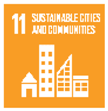 | 11.6 11.1–11.5, 11.7 | Share of population living in areas exposed to levels of air pollution above WHO recommended levels of PM 2.5 (%) - |
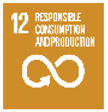 | 12.1–12.8 | partly covered by narrative |
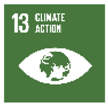 | Global Temperature increase (°C). Paris Climate Goal of limiting global warming to well below 2 °C above pre-industrial levels | |
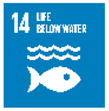 | 14.1–14.7 | - |
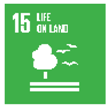 | 15.1–15.3, 15.7 15.2 | - Forest cover (ha) |
 | 16.1–16.10 | partly covered by narrative |
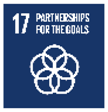 | 17.1–17.19 | partly covered by narrative |
References
- Abel, Guy J., Bilal Barakat, K. C. Samir, and Wolfgang Lutz. 2016. Meeting the Sustainable Development Goals Leads to Lower World Population Growth. Proceedings of the National Academy of Sciences 113: 14294–99. [Google Scholar] [CrossRef] [PubMed]
- Cameron, Colin, Shonali Pachauri, Narasimha D. Rao, David McCollum, Joeri Rogelj, and Keywan Riahi. 2016. Policy Trade-Offs between Climate Mitigation and Clean Cook-Stove Access in South Asia. Nature Energy 1: 15010. [Google Scholar] [CrossRef]
- Dellink, Rob, Jean Chateau, Elisa Lanzi, and Bertrand Magné. 2017. Long-Term Economic Growth Projections in the Shared Socioeconomic Pathways. Global Environmental Change 42: 200–14. [Google Scholar] [CrossRef]
- Eurostat. 2017. People at Risk of Poverty or Social Exclusion. Available online: http://ec.europa.eu/eurostat/statistics-explained/index.php/People_at_risk_of_poverty_or_social_exclusion (accessed on 31 October 2017).
- Gea. 2012. Global Energy Assessment—Toward a Sustainable Future. Cambridge and New York: Cambridge University Press. Laxenburg: The International Institute for Applied Systems Analysis. ISSN 9781 10700 5198 hardback 9780 52118 2935 paperback. [Google Scholar]
- Gidden, Matthew J., Narasimha D. Rao, Simon C. Parkinson, and Keywan Riahi. n.d. Spatially Explicit Urban and Rural Poverty Estimates under Dierent Global Socioeconomic Futures. Nature Sustainability.
- Griggs, David, Mark Stafford-Smith, Owen Gaffney, Johan Rockström, Marcus C. Ohman, Priya Shyamsundar, Will Steffen, Gisbert Glaser, Norichika Kanie, and Ian Noble. 2014. Policy: Sustainable Development Goals for People and Planet. Nature 495: 305–7. [Google Scholar] [CrossRef] [PubMed]
- Hasegawa, Tomoko, Shinichiro Fujimori, Kiyoshi Takahashi, and Toshihiko Masui. 2015. Scenarios for the Risk of Hunger in the Twenty-First Century Using Shared Socioeconomic Pathways. Environmental Research Letters 10: 014010. [Google Scholar] [CrossRef]
- Hegre, Håvard, Halvard Buhaug, Katherine V. Calvin, Jonas Nordkvelle, Stephanie T. Waldhoff, and Elisabeth Gilmore. 2016. Forecasting Civil Conflict Along the Shared Socioeconomic Pathways. Environmental Research Letters 11: 054002. [Google Scholar] [CrossRef]
- Holz, Franziska, Dawud Ansari, Ruud Egging, and Per Ivar Helgesen. 2016. Hybrid Modelling: Linking and Integrating Top-Down and Bottom-up Models. Issue Paper of H2020 project SET-Nav. Trondheim: NTNU. [Google Scholar]
- Hourcade, Jean-Charles, Mark Jaccard, Chris Bataille, and Frédéric Ghersi. 2006. Hybrid Modeling: New Answers to Old Challenges Introduction to the Special Issue of “The Energy Journal”. The Energy Journal 27: 1–11. [Google Scholar] [CrossRef]
- ICSU, and ISSC. 2015. Review of the Sustainable Development Goals: The Science Perspective. Paris: International Council for Science (ICSU). ISSN 978-0-930357-97-9. [Google Scholar]
- IIASA. 2016. Ssp Database (Shared Socioeconomic Pathways)—Version 1.1. International Institute for Applied Systems Analysis (IIASA). Available online: https://secure.iiasa.ac.at/web-apps/ene/SspDb/dsd?Action=htmlpage&page=about (accessed on 31 October 2017).
- IIASA. 2017. The Forests, Agriculture, Biodiversity, Land, and Energy Project: Pathways for Sustainable Land Use. Available online: http://www.iiasa.ac.at/web/home/research/researchPrograms/EcosystemsServicesandManagement/event/170403-fable.html (accessed on 31 October 2017).
- Kc, Samir, and Wolfgang Lutz. 2017. The Human Core of the Shared Socioeconomic Pathways: Population Scenarios by Age, Sex and Level of Education for All Countries to 2100. Global Environmental Change 42: 181–92. [Google Scholar] [CrossRef] [PubMed]
- Lopez, Humberto, and Luis Servén. 2006. A Normal Relationship? Poverty, Growth, and Inequality. World Bank Policy Research Working Paper, No. 3814. Washington: World Bank, January. [Google Scholar]
- Lutz, Wolfgang, William P. Butz, and K. C. Samir. 2014. World Population and Human Capital in the Twenty-First Century. Oxford: Oxford University Press. ISSN 978-0198703167. [Google Scholar]
- McCollum, David L., Volker Krey, and Keywan Riahi. 2011. An Integrated Approach to Energy Sustainability. Nature Climate Change 1: 428–29. [Google Scholar] [CrossRef]
- McCollum, David L., L. Gomez Echeverri, Sebastian Busch, Shonali Pachauri, Simon Parkinson, Joeri Rogelj, Volker Krey, Keywan Riahi, Måns Nilsson, and Anne-Sophie Stevance. 2017. Connecting the Sustainable Development Goals by Their Energy Inter-Linkages. Iiasa Working Paper. Laxenburg: IIASA. [Google Scholar]
- Nakicenovic, Nebojsa, Joseph Alcamo, Gerald Davis, Bert de Vries, Joergen Fenhann, Stuart Gaffin, Kenneth Gregory, Arnulf Grübler, Tae Yong Jung, Tom Kram, and et al. 2000. Special Report on Emissions Scenarios: A Special Report of Working Group Iii of the Intergovernmental Panel on Climate Change. Cambrige: Cambridge University Press. [Google Scholar]
- Nilsson, Måns, Dave Griggs, and Martin Visbeck. 2016. Policy: Map the Interactions between Sustainable Development Goals. Nature 534: 320–22. [Google Scholar] [CrossRef] [PubMed]
- O’Neill, Brian C., Elmar Kriegler, Kristie L. Ebi, Eric Kemp-Benedict, Keywan Riahi, Dale S. Rothman, Bas J. van Ruijven, Detlef P. van Vuuren, Joern Birkmann, Kasper Kok, and et al. 2017. The Roads Ahead: Narratives for Shared Socioeconomic Pathways Describing World Futures in the 21st Century. Global Environmental Change 42: 169–80. [Google Scholar] [CrossRef]
- PovcalNet. 2015. World Bank Povcalnet Database. World Bank. Available online: http://www.worldbank.org/en/news/press-release/2015/10/04/world-bank-forecasts-global-poverty-to-fall-below-10-for-first-time-major-hurdles-remain-in-goal-to-end-poverty-by-2030 (accessed on 31 October 2017).
- Rao, Shilpa, Zbigniew Klimont, Steven J. Smith, Rita Van Dingenen, Frank Dentener, Lex Bouwman, Keywan Riahi, Markus Amann, Benjamin Leon Bodirsky, Detlef P. van Vuuren, and et al. 2017. Future Air Pollution in the Shared Socio-Economic Pathways. Global Environmental Change 42: 346–58. [Google Scholar] [CrossRef]
- Riahi, Keywan, Detlef P. van Vuuren, Elmar Kriegler, Jae Edmonds, Brian C. O’Neill, Shinichiro Fujimori, Nico Bauer, Katherine Calvin, Rob Dellink, Oliver Fricko, and et al. 2017. The Shared Socioeconomic Pathways and Their Energy, Land Use, and Greenhouse Gas Emissions Implications: An Overview. Global Environmental Change 42: 153–68. [Google Scholar] [CrossRef]
- Sperling, Frank, Ilmi Granoff, Eliza Northrop, Anne Olhoff, and Andrew Scott Gale. 2016. Bridging the Gap—The Sustainable Development Goals and Climate Change Mitigation. Copenhagen: UNEP DTU Partnership. ISSN 978-92-807-3617-5. [Google Scholar]
- UN. 2015. Transforming Our World: The 2030 Agenda for Sustainable Development. Edited by UN. A/Res/70/1. 70 vols. New York: United Nations General Assembly. [Google Scholar]
- UN. 2016. Progress Towards the Sustainable Development Goals. Report of the Secretary-General. Supplementary Information. Edited by United Nations Economic and Social Council. New York: United Nations General Assembly. [Google Scholar]
- UNFCCC. 2015. Adoption of the Paris Agreement. 21 vols. Paris: United Nations Framework Convention on Climate Change (UNFCCC), vol. FCCC/CP/2015/L.9/Rev.1. [Google Scholar]
- United Nations. 2015. A/RES/70/1, Transforming Our World: The 2030 Agenda for Sustainable Development. New York: United Nations General Assembly. [Google Scholar]
- United Nations Economic and Social Council. 2017. Report of the Inter-Agency and Expert Group on Sustainable Development Goal Indicators. Edited by Statistical Commission. New York: UN. [Google Scholar]
- van Vuuren, Detlef P., Jae Edmonds, Mikiko Kainuma, Keywan Riahi, Allison Thomson, Kathy Hibbard, George C. Hurtt, Tom Kram, Volker Krey, Jean-Francois Lamarque, and et al. 2011. The Representative Concentration Pathways: An Overview. Climatic Change 109: 5. [Google Scholar] [CrossRef]
- van Vuuren, Detlef P., Elke Stehfest, David E. H. J. Gernaat, Jonathan C. Doelman, Maarten van den Berg, Mathijs Harmsen, Harmen Sytze de Boer, Lex F. Bouwman, Vassilis Daioglou, Oreane Y. Edelenbosch, and et al. 2016. Energy, Land-Use and Greenhouse Gas Emissions Trajectories under a Green Growth Paradigm. Global Environmental Change 42: 237–50. [Google Scholar] [CrossRef]
- van Vuuren, Detlef P., Keywan Riahi, Katherine Calvin, Rob Dellink, Johannes Emmerling, Shinichiro Fujimori, Samir Kc, Elmar Kriegler, and Brian O’Neill. 2017. The Shared Socio-Economic Pathways: Trajectories for Human Development and Global Environmental Change. Global Environmental Change 42: 148–52. [Google Scholar] [CrossRef]
- World Bank. 2015. Faqs: Global Poverty Line Update. Available online: http://www.worldbank.org/en/topic/poverty/brief/global-poverty-line-faq (accessed on 31 October 2017).
- World Bank. 2017a. Household Final Consumption Expenditure, Etc. (% of Gdp). The World Bank. Available online: https://data.worldbank.org/indicator/NE.CON.PETC.ZS (accessed on 31 October 2017).
- World Bank. 2017b. Primary & Secondary Education. Available online: http://www.worldbank.org/en/topic/primarysecondaryeducation/overview#1 (accessed on 31 October 2017).
| 1 | The World in 2050 (TWI2050) initiative: www.twi2050.org. |
| 2 | For each SDGs several numeric targets are provided. These are complemented by targets on ‘means of implication’, denoted in alphabetical order. Out of the total 169 SDG targets, we assess the 126 numeric targets, which define the quantitative or qualitative characteristics of the SDGs, and ignore the 43 targets dealing with means of implementation. |
| 3 | |
| 4 | Acknowledging that the United Nations Framework Convention on Climate Change is the primary international, intergovernmental forum for negotiating the global response to climate change. |
© 2018 by the authors. Licensee MDPI, Basel, Switzerland. This article is an open access article distributed under the terms and conditions of the Creative Commons Attribution (CC BY) license (http://creativecommons.org/licenses/by/4.0/).